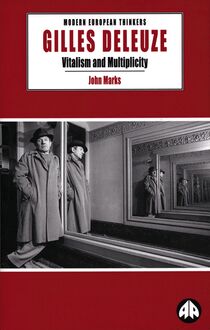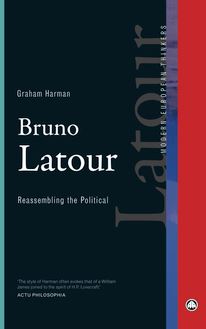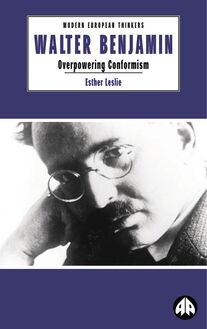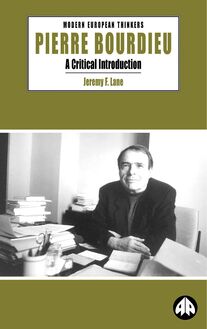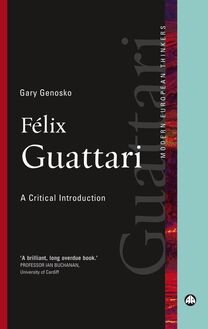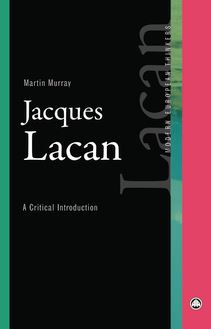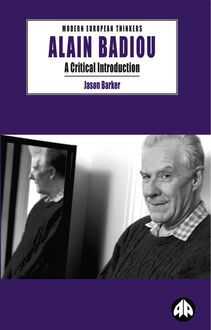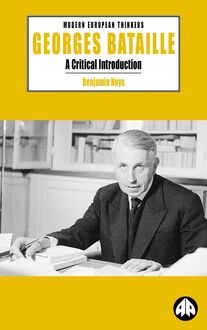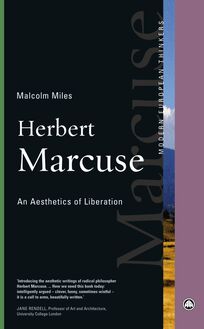-
 Univers
Univers
-
 Ebooks
Ebooks
-
 Livres audio
Livres audio
-
 Presse
Presse
-
 Podcasts
Podcasts
-
 BD
BD
-
 Documents
Documents
-
- Cours
- Révisions
- Ressources pédagogiques
- Sciences de l’éducation
- Manuels scolaires
- Langues
- Travaux de classe
- Annales de BEP
- Etudes supérieures
- Maternelle et primaire
- Fiches de lecture
- Orientation scolaire
- Méthodologie
- Corrigés de devoir
- Annales d’examens et concours
- Annales du bac
- Annales du brevet
- Rapports de stage
La lecture à portée de main
Vous pourrez modifier la taille du texte de cet ouvrage
Découvre YouScribe en t'inscrivant gratuitement
Je m'inscrisDécouvre YouScribe en t'inscrivant gratuitement
Je m'inscrisEn savoir plus
Vous pourrez modifier la taille du texte de cet ouvrage
En savoir plus

Description
Finn Bowring shows how Arendt's writings have engaged with and influenced prominent figures in the sociological canon, and how her ideas may shed light on some of the most pressing social and political problems of today. He explores her critique of Marx, her relationship to Weber, the influence of her work on Habermas and the parallels and discrepancies between her and Foucault. This is a clearly written and scholarly text which surveys the leading debates over Arendt's work, including discussions of totalitarianism, the public sphere and the nature of political responsibility.
This book will bring new perspectives to students and lecturers in sociology and politics.
A Note on Referencing and Abbreviations
Introduction: Time for Action
1. The Vita Activa
2. Critique of Modernity
3. From Action to Power: The Fate of the Political
4. Marxism, Ecology and Culture
5. Feminism, the Social and the Political
6. Imperialism, Racism and Bureaucracy:
The Road to Totalitarianism
7. Totalitarianism
8. In Search of the Subject
9. The Vita Contemplativa
Conclusion: Going Astray with Arendt
Notes
References
Index
Sujets
Informations
| Publié par | Pluto Press |
| Date de parution | 04 août 2011 |
| Nombre de lectures | 1 |
| EAN13 | 9781783710812 |
| Langue | English |
Informations légales : prix de location à la page 0,1850€. Cette information est donnée uniquement à titre indicatif conformément à la législation en vigueur.
Extrait
Hannah Arendt
Modern European Thinkers
Series Editors: Anne Beech and David Castle
Over the past few decades, Anglo-American social science and humanities have experienced an unprecedented interrogation, revision and strengthening of their methodologies and theoretical underpinnings through the influence of highly innovative scholarship from continental Europe. In the fields of philosophy, post-structuralism, psychoanalysis, critical theory and beyond, the works of a succession of pioneering writers have had revolutionary effects on Anglo-American academia. However, much of this work is extremely challenging, and some is hard or impossible to obtain in English translation. This series provides clear and concise introductions to the ideas and work of key European thinkers.
As well as being comprehensive, accessible introductory texts, the titles in the Modern European Thinkers series retain Pluto s characteristic radical political slant, and critically evaluate leading theorists in terms of their contribution to genuinely radical and progressive intellectual endeavour. And while the series does explore the leading lights, it also looks beyond the big names that have dominated theoretical debates to highlight the contribution of extremely important but less well-known figures.
Also available
Alain Badiou Jason Barker
Georges Bataille Benjamin Noys
Jean Baudrillard Mike Gane
Walter Benjamin Esther Leslie
Pierre Bourdieu Jeremy F. Lane
Gilles Deleuze John Marks
Andr Gorz Conrad Lodziak and Jeremy Tatman
F lix Guattari Gary Genosko
J rgen Habermas Luke Goode
Guy Hocquenghem Bill Marshall
Julia Kristeva Anne-Marie Smith
Slavoj i ek Ian Parker
First published 2011 by Pluto Press 345 Archway Road, London N6 5AA
www.plutobooks.com
Distributed in the United States of America exclusively by Palgrave Macmillan, a division of St. Martin s Press LLC, 175 Fifth Avenue, New York, NY 10010
Copyright Finn Bowring 2011
The right of Finn Bowring to be identified as the author of this work has been asserted by him in accordance with the Copyright, Designs and Patents Act 1988.
British Library Cataloguing in Publication Data
A catalogue record for this book is available from the British Library
ISBN 978 0 7453 3142 3 Hardback
ISBN 978 0 7453 3141 6 Paperback ISBN 978 1 7837 1081 2 ePub
Library of Congress Cataloging in Publication Data applied for
This book is printed on paper suitable for recycling and made from fully managed and sustained forest sources. Logging, pulping and manufacturing processes are expected to conform to the environmental standards of the country of origin.
10 9 8 7 6 5 4 3 2 1
Designed and produced for Pluto Press by Chase Publishing Services Ltd Typeset from disk by Stanford DTP Services, Northampton, England Simultaneously printed digitally by CPI Antony Rowe, Chippenham, UK and Edwards Bros in the United States of America
To Chris, for his friendship, good humour, and common sense.
Contents
A Note on Referencing and Abbreviations
Introduction: Time for Action
1 The Vita Activa
2 Critique of Modernity
3 From Action to Power: The Fate of the Political
4 Marxism, Ecology and Culture
5 Feminism, the Social and the Political
6 Imperialism, Racism and Bureaucracy: The Road to Totalitarianism
7 Totalitarianism
8 In Search of the Subject
9 The Vita Contemplativa
Conclusion: Going Astray with Arendt
Notes
References
Index
A Note on Referencing and Abbreviations
For this study of Arendt s work, I have drawn generously on all her posthumously published texts. To simplify the referencing system, which in Arendt s case, given her penchant for essays, would otherwise require scores of separate bibliographical entries, I have restricted my Arendt references largely to her books, including the edited collections. Where the articles in these collected volumes span several decades, this is clearly an unsatisfactory way of dating Arendt s arguments and ideas. But my intention is to present Arendt s work as an organic whole, so in my view the loss of detail in referencing the dates and titles of Arendt s essays is a small price to pay for improved readability. The system of abbreviations I use is as follows (in alphabetical order): CR Crises of the Republic. San Diego: Harcourt Brace, 1972. EJ Eichmann in Jerusalem: A Report on the Banality of Evil [1963]. Revised and enlarged edition. Harmondsworth: Penguin, 1977. EU Essays in Understanding 1930-1954: Formation, Exile, and Totalitarianism. New York: Schocken, 1994. HC The Human Condition [1958]. Second edition. Chicago: University of Chicago Press, 1998. JP The Jew as Pariah. New York: Grove Press, 1978. JW The Jewish Writings. New York: Schocken, 2007. LA Love and Saint Augustine. Chicago: University of Chicago Press, 1996. LK Lectures on Kant s Political Philosophy. Chicago: University of Chicago Press, 1982. LM1/2 The Life of the Mind. Volumes 1 and 2. San Diego: Harcourt, 1978. MD Men in Dark Times [1968]. London: Jonathan Cape, 1970. OR On Revolution [1963]. Revised edition. Harmondsworth: Penguin, 1990. OT The Origins of Totalitarianism [1951]. Third edition. New York: Harcourt, 1973. OV On Violence. San Diego: Harcourt Brace, 1970. PF Between Past and Future: Eight Exercises in Political Thought [1961]. Second edition. Harmondsworth: Penguin, 1968. PP The Promise of Politics. New York: Schocken, 2005. RJ Responsibility and judgement. New York: Schocken, 2003. RV Rahel Varnhagen: The Life of a Jewish Woman [1957]. Revised edition. San Diego: Harcourt Brace Jovanovich, 1974.
Introduction: Time for Action
The work of Hannah Arendt is well known to students and scholars of political science and philosophy, but in the discipline of sociology, and its more imaginative sibling, social theory, her name often stirs only faint recognition. As an academic who teaches social theory in a social science department, my own interest in Arendt arose from studying debates on the labour process and the future of work. The sociology of work , as it used to be called, has become a rather unfashionable field in recent years, partly because the concept of work, finally having escaped the grip of political economy, now has many rival definitions and meanings. Today the term is used to draw attention to the previously neglected endeavours of a multitude of individuals performing all manner of socially and economically relevant activities, from childrearing to the performance of gender, from identity work to emotional labour . Used to confer sociological status on any activity that requires effort, inventiveness, initiative or perseverance, work is a concept that has been haemorrhaging significance.
In contrast to the increasingly promiscuous use of the term, Arendt s well-known division of human activities into three distinctive types - labour, work and action - suggested something less capricious and more essential. It offered an anthropologically grounded set of categories with which to look again at, amongst other things, the trials and frustrations of paid employment, and above all it helped answer a question that had been bothering me for some time. What are we going to do when there is not enough work to occupy most of us most of the time? Or, as the late Andr Gorz used to put it: how can we humanise the free time which capitalist economies, despite their most strenuous and destructive efforts, cannot help but keep producing? Arendt s answer is partly Aristotelian in flavour: we are political beings ( animals , in Aristotle s formulation, though Arendt would regard this as a contradiction in terms), and political action is the highest manifestation of the human condition. But of course, politics takes time.
As I shall show later in this book, Arendt emphasised the political dimension of human activity in explicit opposition to Marx s definition of our species as quintessentially productive in nature. This same opposition also influenced Habermas s reconstruction of historical materialism, and his insistence that we recognise the significance of both instrumental labour and communicative interaction in understanding the development of modern society and the modes of human flourishing. Arendt s dialogue with Marx is more or less explicit, but her work has relevance to other thinkers, both classical and contemporary, in the sociological tradition. Her intellectual struggle to marry freedom with stability, the initiation of something new with the continuity of a common world, would immediately prompt a reference to Durkheim, were it not for Arendt s hostility to the idea of the social , and indeed her deep suspicion of the sociological obsession with the normal and predictable rather than the unexpected and the extraordinary. Intellectually, Arendt s own outlook appears to have more in common with the neo-Kantian tradition inherited by Max Weber, though again we shall see that there are some curious divergences, such as their different conceptualisations of bureaucracy and their opposing theories of power. In the course of this book I shall explore how Arendt s thought relates to a number of other perspectives and thinkers in contemporary social theory, including feminist epistemology, political ecology, Foucault s post-structuralism, and the work of Richard Sennett and Zygmunt Bauman.
Let me preview a couple of important themes here. Arendt s intellectual standing has risen in some quarters over the last two decades as the anti-foundationalist critique of Enlightenment rationalism has gathered pace. Arendt s argument is that politics is always an exchange of opinions, and truth has no central role to play in it because, like violence, truth has a coercive force which is incompatible with free deliberation and judgement. Perhaps most interestingly, Arendt suggests that a kind of common truth - a sense of there being a common world which we share and care about - becomes tangible to us only when w
-
 Univers
Univers
-
 Ebooks
Ebooks
-
 Livres audio
Livres audio
-
 Presse
Presse
-
 Podcasts
Podcasts
-
 BD
BD
-
 Documents
Documents
-
Jeunesse
-
Littérature
-
Ressources professionnelles
-
Santé et bien-être
-
Savoirs
-
Education
-
Loisirs et hobbies
-
Art, musique et cinéma
-
Actualité et débat de société
-
Jeunesse
-
Littérature
-
Ressources professionnelles
-
Santé et bien-être
-
Savoirs
-
Education
-
Loisirs et hobbies
-
Art, musique et cinéma
-
Actualité et débat de société
-
Actualités
-
Lifestyle
-
Presse jeunesse
-
Presse professionnelle
-
Pratique
-
Presse sportive
-
Presse internationale
-
Culture & Médias
-
Action et Aventures
-
Science-fiction et Fantasy
-
Société
-
Jeunesse
-
Littérature
-
Ressources professionnelles
-
Santé et bien-être
-
Savoirs
-
Education
-
Loisirs et hobbies
-
Art, musique et cinéma
-
Actualité et débat de société
- Cours
- Révisions
- Ressources pédagogiques
- Sciences de l’éducation
- Manuels scolaires
- Langues
- Travaux de classe
- Annales de BEP
- Etudes supérieures
- Maternelle et primaire
- Fiches de lecture
- Orientation scolaire
- Méthodologie
- Corrigés de devoir
- Annales d’examens et concours
- Annales du bac
- Annales du brevet
- Rapports de stage
